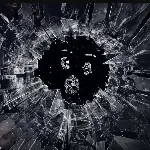There was a time when, similar to what happened with David Lynch—just to mention the most significant example of the last 30 years—Wes Anderson's cinema was considered a subgenre itself. Perfect frames, rigorously calculated camera movements, vivid, radiant colors, absurd humor… and many—too many, I would say—eccentric characters. These are just some of the elements that make up his stories, but who's Wes Anderson? What's his concern as an artist? What does he want to convey or transmit? What's his vision, his philosophy, his political and social inclinations? What's he looking for by making cinema? I think I'm not wrong when I say that, his cinema, in parallel with AI advancements, turned into something more similar to what Google's Veo 3 or any other similar tool can do than to what a human being is capable of creating in an editing room.
A couple of weeks ago, I was invited to watch his latest movie, The Phoenician Scheme, in an exclusive press screening. But unfortunately, that day I got up on the wrong side of the bed. I went to the movie theater almost feeling disgusted, depressed and disappointed to watch the new symmetric, far-fetched, confusing adventure of this director tired of—not—reinventing himself. And just like he doesn't get tired, I'm indeed exhausted from seeing many influencers' reels imitating his style, of seeing how all Cannes falsely praises a director who repeats himself and that lately—and just lately—has been causing the most extensive, overwhelming yawns. Where did Wes' charisma, tenderness, and warmth go?
Yes, I haven't always been a hater of this "premillennial Stanley Kubrick." I fell in love with a part of his vision thanks to the big-hearted nature of titles like The Grand Budapest Hotel, Fantastic Mr. Fox, Isle of Dogs or The Life Aquatic with Steve Zissou, but I realized not everything lasts forever nor can follow the same line. Wes Anderson decided to never evolve nor revolutionize, but this isn't his responsibility. We, as the audience, can't decide what will be the changes in a director's or any other artist's filmography. Ultimately, we are just one link in the chain of the relationship we create with them. Due to this, a while ago already, I decided to step aside until the opposite happened, but the update is that, once again, it didn't…

My opinion may sound—or be read in such a case—as deterministic or pessimistic. And it is in fact. I refuse to believe that it will always be this way, but something also tells me that Wes got hoisted by his own petard. Referencing his latest movie, I ask, what's his work scheme? Anderson seems to have everything under too much control. This way of seeing cinema as an artistic journey full of elements not to be left to chance can, on some occasions, be tricky for the participants or people involved. In The Phoenician Scheme, everything is so contrived I couldn't tell if the characters were written by a really advanced version of ChatGPT or if the story was dictated by the ideas of a computer.
"What can I help you with?" I need to write a script about a powerful man who calls his religious daughter to help him get rid of the constant threats and dangers his enemies throw at him. I also need to set the story in the 50s and make all the characters weird and robotic.
The thing is, precisely talking about heart—like I mentioned a few lines above—Wes seems to have lost it—sorry Wes, it's just how I feel. His stories stopped having it. The foundation of this beautiful art is based on universal words and concepts, which know no borders nor cultures. Love, friendship, pain, sadness, fellowship… What's his new drama starring Benicio Del Toro about? I left the movie theater, briefly talked to some colleagues, took the bus and arrived at my apartment. Well, it technically isn't mine, I rent it, but you know what I mean. I set out to vent this movie's each and every aberration hanging over my head like a rollercoaster, but I believed it wasn't the time.

"Let's try to process it in a better way," I said to myself.
Days passed, some images got engraved in my mind, but the feeling is still exactly the same: I don't know what The Phoenician Scheme is about. It could be a sort of camouflaged prequel/spin-off of The French Dispatch since Del Toro not only stars in both movies, but also has the same crazy convict appearance from the 2021 movie in a surreal sequence of the work we will analyze next. The protagonist is Zsa-zsa Korda, a powerful farming tycoon—the profession he uses as a cover—who, among many murky businesses, ends up gaining many enemies not only from different corporations he deceived, but also from governments that try to kill him on many occasions.
Zsa-zsa doesn't have a passport, nationality nor declared home, and the amount of money he operates is a mystery. In an attempt to change the fatal course that awaits him, he decides to leave everything to one of his nine heirs, a nun—or attempt of—called Liesl. From the beginning, it's made clear that all the characters will be portrayed coldly, something not unusual in his cinema. But is there a feeling of redemption, of change? Do the characters have an arc, even if it's minimal? My desire to really connect with the story vanished as minutes ticked by. The thousands of moments, facts, situations and things that unfolded only got some laughs out of me while the journalist behind me laughed exaggeratedly. My intuition was actually a premonition: I ended up disappointed.

"The Anderson(ian) Scheme" falls to pieces while the specialized critics, fake influencers and influencer wannabes break their backs to praise a structure that lost strength a long time ago. Goodbye, Wes, my resignation seems to be absolute. And so does my disappointment.
Published on JUNE 20, 2025, 11:08 AM | UTC-GMT -3
If you liked this piece of writing expression remember to give it a 👉 LIKE, put it in your FAVORITES, COMMENT 🗣️ , and FOLLOW ME for more articles like this📽



























































View replies 2